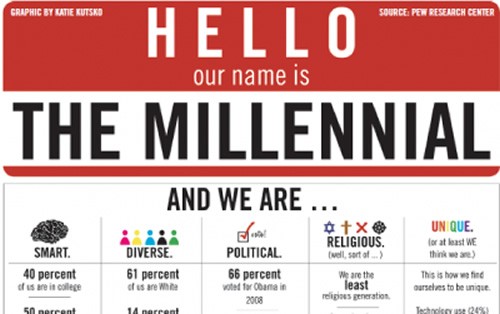
Like so many other organizations and communities in the Jewish world, we are concerned about the future.
We are concerned about the future of our communal institutions and their capacity to adapt and thrive in changing times. We are concerned about the involvement of the next generation and their desire to connect and engage. We are concerned about Jewish education and sustaining the formal and experiential programs that have been developed across Canada. As proud as we are of the strong network of schools and camps, we are concerned about their long term viability.
A core pillar of JFC-UIA’s organizational focus is a commitment to the next generation. While this commitment is fulfilled in many ways, there are two frontrunners in terms of effectiveness and impact.
First are the experiential education programs that bring young Canadians to Israel and communities in Europe with relevant Jewish history or current context.
Second is a national leadership development program that is designed to strengthen the skills and networks of Canada’s young leaders and expose them to the macro work of our continental and international partners. We also serve over 20,000 Jewish post-secondary students on campus through our funding of Hillel Ontario and CIJA.
Indeed, if one scans the strategic priorities of the Canadian Federations, each and every one has a key commitment to this age cohort reflecting a fundamental understanding that going about our business as usual will not get us from here to there.
If we as a national community want to sustain a robust leadership group into the future, new paradigms, new structures and new strategies with a deeper impact are needed.
This timeless concern about the future of the Jewish community reminds me of my own trajectory into the organized Jewish community in the late 60's. I was invited to sit on a Youth Commission struck by the AJCS (now Montreal Federation CJA). In an era characterized by Woodstock and Haight Ashbury, the community was anxious about its ability to engage the youth of the day. Some of these youth included esteemed journalist Charles Krauthammer, former ambassador Norman Spector and Professor Morton Weinfeld, all of whom are today upstanding active community leaders.
Indeed, many of the youth of the 60's and 70's passed through the so-called "generation gap" and later claimed their places within the leadership ranks of our communities. Many were children of immigrants, while others were born in Canada at a very different historical period. Whichever the case, communication was a challenge and families often struggled to understand each other's world view.
So the question must be posed - is alienation and disengagement with traditional Jewish organizations by the younger generations part of a fundamental developmental journey, and young people will, if left to their own devices, find their way back? Or is there something else much deeper going on?
And even if the answer is that the developmental journey quite naturally entails distractions and sidesteps from mainstream Jewish community life, in today’s environment can we, as a community, afford to wait for nature to run its course? Or should we accelerate the re-entry of the millennials into our communal structures by building definitive intentional strategies that don't rely on nature alone?
While there is much sociological research focused on the millennial generation, there has not been any focused on collecting data specifically from Canadian Jewish millennials.
This prompted our two national organizations, JFC-UIA and CIJA, to collaborate to develop a study that will help to deepen our understanding of Jewish Canadian millennials.
Over the course of several months, a survey was completed by thousands of Canadian millennials currently on the mailing lists of our Federations, Hillel's and the Canada Israel Experience alumni. And while it is must be stated that the target audience is somewhat engaged and connected, the responses collected were useful in helping to understand what this generation wants and how they view the world, especially the Jewish world.
Close to 3000 respondents provided input that will help shape our future work.
Some key findings included:
1. Federation is seen as a hub for: Fighting antisemitism; Caring for the vulnerable; Jewish identity; Supporting Israel – all timeless Jewish themes.
2. Successful events require: Interesting topics; A warm and welcoming environment; Convenient time; Low cost.
3. Synagogues are less central to identity and practice and ritual practice is not limited to institutional affiliation. Many millennials are highly family, home and community centred.
4. There is a high level of volunteerism for both Jewish and non Jewish causes.
These findings will teach us how to engage and connect with the millennial generation. Our traditional affiliation models and expectations will need to adapt sooner than later if they are to survive.
Click here for the full presentation of findings.
At the same time, a number of innovative community programs have started to address some of these findings and successfully engage and connect with millennials.
Two such approaches include micro-intentional communities like ‘Moshe House’, ‘Honeymoon Israel’, Israel based programs that focus on universal Jewish values such as tikkun olam. In order to succeed, community organizations must develop programs and strategies that combine the warm and welcoming with the open and universal. They must cater to a ‘ME’- centric generation while at the same time knowing that affiliation is counter culture.
It is true that every generation must make its mark on its community. It is also true that each generation leaves a legacy for the next. But in order to do so, Community leadership must know when and how to make room for the up and coming generation and give them the leeway required for them to assume responsibility in leadership positions while bringing about institutional change that reflects their priorities and interests and preferences.
Like so many philanthropic organizations, JFC-UIA and our federation partners are actively exploring opportunities to meet this exciting challenge so that we can ensure a strong and vibrant future for our national Jewish community.



0Comments
Add CommentPlease login to leave a comment